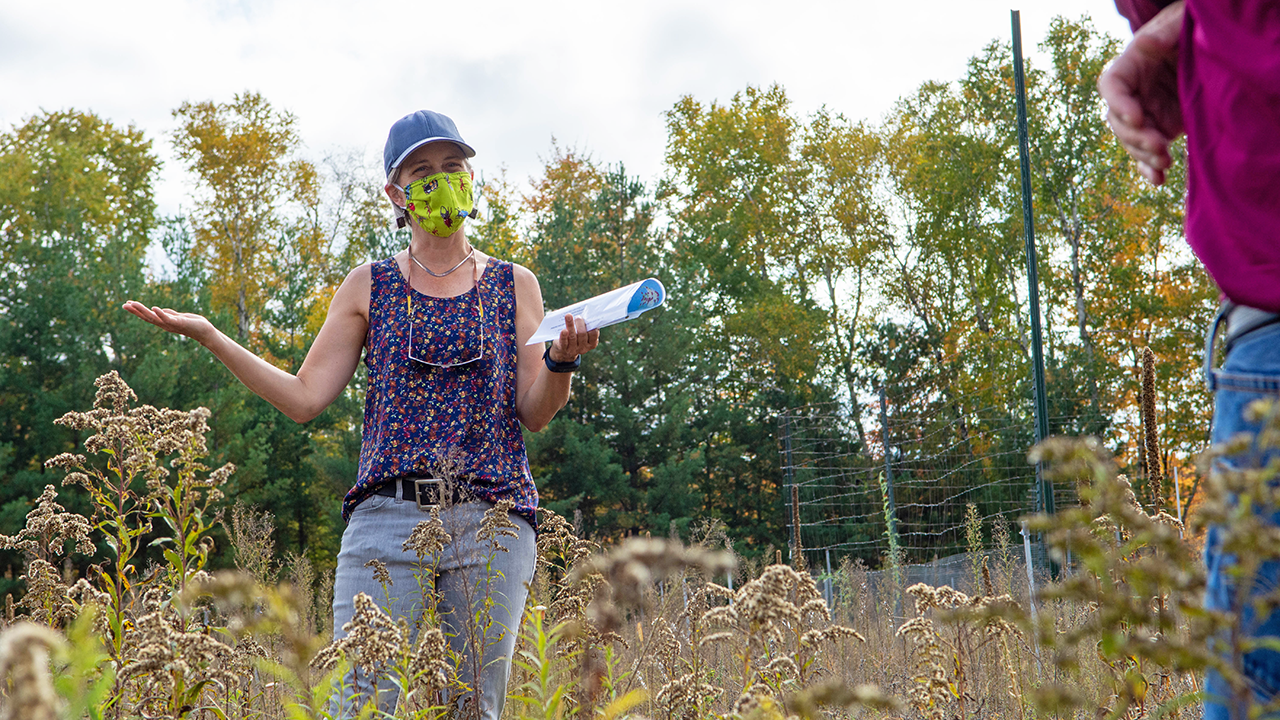At 140 sites in 26 countries across the globe, researchers are working to understand how human activities are changing grassland ecosystems.
This collaborative effort, led by faculty in the University of Minnesota’s College of Biological Sciences (CBS), is known as the Nutrient Network (or “NutNet” for short). When it started in 2007, the project became the world’s first globally coordinated experiment to measure the effects on ecological systems of nitrogen coming into ecosystems from agriculture and fossil fuel combustion. As it continues, its findings can help scientists predict how human activities will alter natural ecosystems around the world.
At UMN, NutNet occupies part of the expansive Cedar Creek Ecosystem Science Reserve, a CBS field station about 45 minutes north of the Twin Cities that contains ecosystems and species found throughout the forests and grasslands of North America.
Elizabeth Borer, PhD, cofounder of NutNet and professor in the Department of Ecology, Evolution, and Behavior in CBS, said the project was designed to understand whether findings at one site held true elsewhere in the world.
